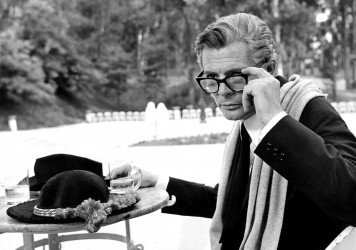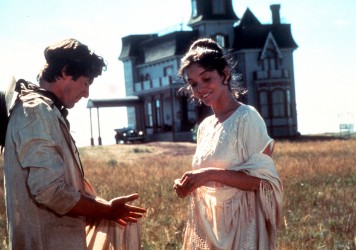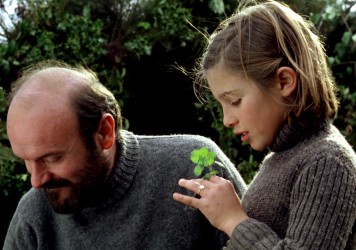A new restoration of Ermanno Olmi’s epic and intimate Palme d’Or winner is not to be missed.
In Ermanno Olmi’s humanist masterpiece The Tree of Wooden Clogs, a Catholic priest tells one of his peasant parishioners that “we wouldn’t be here without miracles.” The same could be said of the film itself, a rare epic that feels simultaneously intimate and grand in its exploration of Italian tenement farmers doing their best to survive at the end of the 19th century. Using a cast of non- professional actors – credited collectively as “the people of the Bergamo countryside” – Olmi taps into the details of a specific cultural experience. Age-old traditions, superstitions, celebration songs, and rites of passage all come to define the film’s sense of time and place.
This organic quality makes the inevitable collisions between religion and individualism even more affecting. We see conflicts unfold through the eyes of specific families: Batistì (Luigi Ornaghi) and his wife decide to send their young son Minec (Omar Brignoli) to school hoping he will break the cycle of poverty in their family; elderly Anselmo (Giuseppe Brignoli) helps his widowed daughter raise six children; Stefano (Franco Pilenga) courts Maddalena (Lucia Pezzoli) without a hint of aggression or lust. Each story inevitably overlaps due to the characters’ close living quarters and shared working hours.
Aside from exploring the beautiful and melancholic nuances of daily life, The Tree of Wooden Clogs also considers the glaring social inequalities that keep these peasants mired in what Olmi sees as a feudal purgatory. The wealthy landowner rarely makes an appearance, but his hypocritical rules are felt in the limitations and pressures placed on each family. Talk of rebellion and progressive ideology bleeds through on the fringes but never makes significant impact on the characters themselves. Instead, localised challenges take on increased magnitude. Major events include a sick cow or the annual butchering of a pig.
Subversive acts of survival are sometimes necessary, and desperate pleas to God himself are not uncommon. Sometimes prayers are answered, but often they are not. What remains constant is the film’s focus on the community as true saviour. After travelling to Milan on their wedding day, Stefano and Maddalena visit a convent/orphanage and are consulted by a nun. She tells them, “we must help each other in this world.” This quote fails to o er comfort during the devastating final act in which Batistì’s family are forced to leave because of a minor indiscretion.
While the struggles of his characters are constant, Olmi carefully reveals the vital changes they must make when transitions occur. Weddings, births and deaths make ripples across the community. The Tree of Wooden Clogs refuses to sensationalise such experiences. It is a film of varying human oscillations: rowdy hellos and unspoken goodbyes, casual swindles and mind- numbing hard work. People drift through, and then leave forever. Ultimately, it’s a hypnotic treatise on pragmatism that inspires hope and doubt. In the end, one neighbour tells another, “If we don’t help each other…” In this warning, the ellipsis says it all.
Published 7 Jul 2017
A restored print of this 1978 Palme d’Or winner.
Olmi’s humanist miracle is both epic and intimate.
Produces feelings of aching joy and melancholy in equal measure.

By Ian Mantgani
Federico Fellini’s iconic masterpiece is back on the big screen. Don’t miss it.

By Sophie Brown
Terrence Malick observes the calm and the chaos that fluctuate beneath the unpredictability of life.

Every inch of every frame in this lilting father-daughter drama by Victor Erice is calculated perfection.